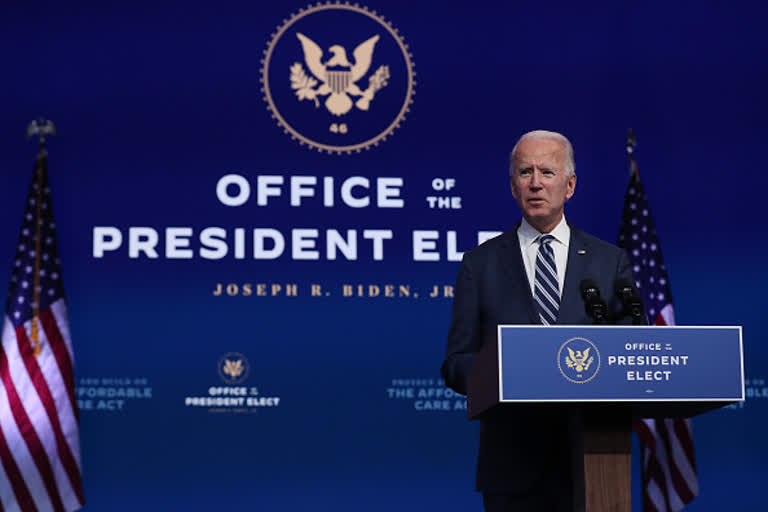Business Desk, ETV Bharat: Even as Democrat Joe Biden prepares to take over as the 46th US President, defeating Donald Trump, India should not expect any major reboot in its trade equations with the US, according to a foreign trade specialist.
In a chat with ETV Bharat, Jayant Dasgupta, former Indian ambassador to the World Trade Organisation (WTO), said: “Trade relations between India and the US down the years have been more or less similar both during the Democrat and Republican regimes. So, I don’t expect any major change in the attitude of the US towards India after Biden becomes president.”
The overall bilateral trade between India and the US has increased significantly from $19 billion in 2000 to $142 billion in 2018. In fact, it is expected to cross $150 billion for the first time this year. However, tensions have persisted in the past few years because of the economic nationalisms being practised by the leaders of both nations.
Over the years, the US has openly shown its frustration with India’s high tariffs and its approach to intellectual property rights. The Trump administration has in fact followed through with punitive measures like imposing tariffs on steel and aluminium imports from India, among other countries, in 2018, and then by ending India’s preferential status under the Generalized System of Preferences (GSP) programme last year. India then retaliated with its own tariffs on over $1.3 billion worth of US exports.
“Under the Trump presidency, two major issues surfaced. One, India’s removal from the US trade preference programme (GSP) and the unilateral duties slapped on the steel and aluminium imports coming from the country. The US didn’t follow objective criteria as laid down under WTO agreement while taking these decisions. It was an extreme step,” said Dasgupta.
Read more: Gold prices likely to scale up towards Rs 65K/10gm: Religare
“Now, in order to restore India’s GSP status, the US was trying to negotiate a mini trade deal… this means they were indirectly asking us to pay for something that they should not have done in the first place,” he added.
To recall, the US is asking India for removal of price caps on medical equipment and greater market access for dairy products, mobile phones, motor bikes and high-end IT products and farm goods. “It would be now interesting to see how Biden takes up and resolves the matter,” noted Dasgupta.
However, he was hopeful of some advancements on the H1-B visa issue. “The only fresh approach possible under the Biden administration is that he may relook at H1-B visa restrictions if India asks for relaxations,” said Dasgupta, adding: “But that too because he wants to make his country’s industry more competitive, not because he wants to support Indian professionals.”
“Also, some bad-mouthing will stop… that will change. Statements like ‘tariff king’ and ‘filthy air’ would hopefully not be made… That’s what we can expect,” he concluded.



